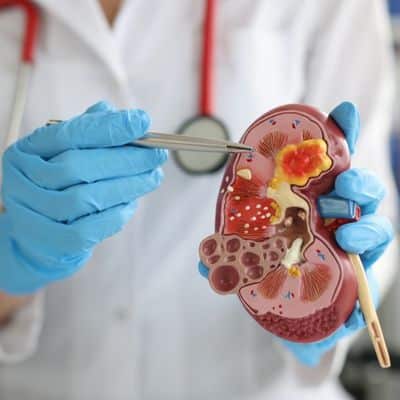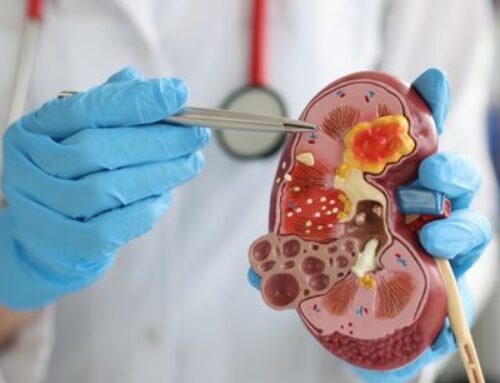Polycystic Kidney Disease (PKD) is a genetic disease characterized by many cysts growing inside the kidneys. Kidney tissue becomes damaged.
Nephrons get affected by the growth of cysts, thus stopping the kidneys from filtering out waste products.
About 600,000 patients are diagnosed with PKD in the United States of America yearly. Kidney failure may develop from PKD complications.
TYPES OF POLYCYSTIC KIDNEY DISEASE (PKD)
There are three types of PKD, namely;
- Autosomal Dominant Polycystic Kidney Disease. It gets diagnosed in adulthood.
- Autosomal Recessive Polycystic Kidney Disease. It is diagnosable during childhood.
- Acquired Cystic Kidney Disease. It is caused by kidney failure.
SYMPTOMS
Patients who get diagnosed with PKD present with;
- Back pains
- Swollen or enlarged stomach
- High Blood pressure
- Blood in the urine
- Persistent bladder and kidney infections
RISK FACTORS
Genetic factors cause Polycystic Kidney Disease. Therefore, people who have a history of the disease in their families have higher chances of getting it.
People from such families should seek medical advice before conception to reduce the likelihood of having a child with the disease.
TESTS
There are different testing methods used for diagnosis, namely;
- Ultrasounds
- CT Scans
- MR
- Genetic testing
TREATMENT
There is no cure yet for PKD. However, vigorous research processes are ongoing to find its cure soon.
Following a diagnosis, the doctor’s job is to halt the progression of the cysts in the kidneys as they grow larger. Medications are administered to this effect. The patient is also required to consume large amounts of water throughout the day. Moreso, the patient should avoid consumption of;
- Alcohol
- Tobacco
- Salty diets
- Oily foods
- Caffeine
- Unprescribed medication
A healthy lifestyle will prevent further complications, which involves regular exercise. The patient should maintain healthy levels of blood pressure and blood sugar.
If you have PKD or a family history of it, contact our kidney specialists at Richmond Nephrology Associates for care so we can help manage it and its effects on other organs.





